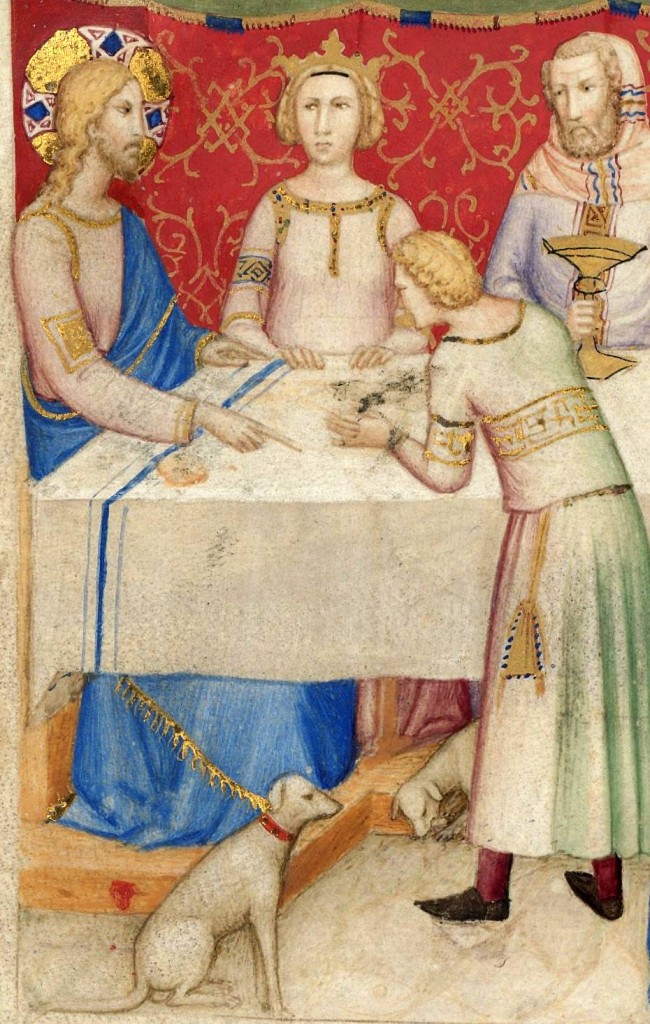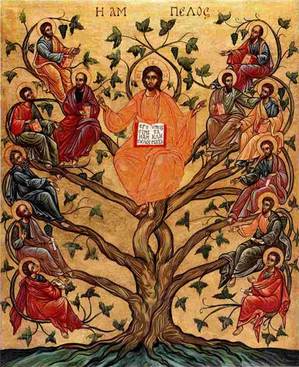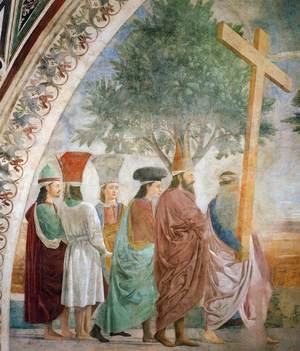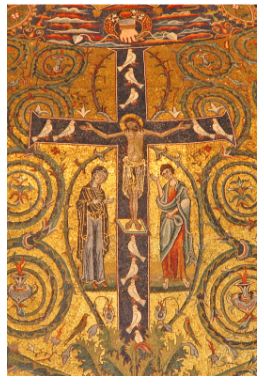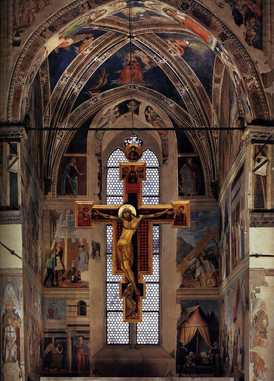That’s an odd question for Christian, no? Well, no, it is not. The other day my friend Henry and I were talking about this question and why so many Catholics, or at least those who claim to be Catholic, and therefore, Christian, don’t adhere more closely to Christ, the Scripture, Tradition and the Church. Our conclusion is that the poor nature of catechesis, preaching, sacramental preparation, faith formation and pastoral guidance has done a dis-service to the Church for a VERY long time. I am not willing to say “since Vatican II” because while I think that Christian life since V2 has disintegrated a lot and Catholics have become somewhat Protestant, we can’t blame everything on Pope John’s Council.
Stories surface –and you may have heard them too– that some priests, nuns and other lay pastoral associates in the parishes have acted irresponsibly and incredibly when a Protestant comes to them saying, “Father, I’m a baptized Lutheran and I want to be Catholic.” And Father says, “Why bother ‘converting to Catholicism,’ Lutherans and Catholics are the same, our churches just nuance things differently. I wouldn’t bother, you already have a good church. Besides, Lutherans do a lot of things better than we Catholics.” Really? I thought following Christ closely meant living in and with the Church He gave us. Is Christ worth following, or not? Upon this rock….
Is it just about a nuance? Since when can a Catholic say (i.e., hold to be true) that faith in the Triune God, salvation [heaven, hell, or purgatory], sacraments, the Sacrifice of the Mass, ecclesiology, Christology, etc. is just about nuancing “theological opinions” differently from those who live as Protestants? Do these things not truly, substantially matter? Is there no consequence in believing the wrong datum of Christ’s teaching? What about the teaching of the Scriptures on Christ as the Way, the Truth, and Life, that upon Peter, the rock, Christ built the Church, what about the Emmaus and Pentecost experiences, what about the Eucharist, what about the forgiveness of sins, what about the priesthood, etc? What about the clear teachings of the Church Fathers down through the ages on the necessity of the Church as Christ’s foundation for salvation? Do these things not matter? Are there no differences but only nuances? Are we insane in allowing those who seek the face of God according to the sacrament of the Church as Christ established to find their own way, in their own time and according to their own method? Is there no objectivity of faith & reason in the One, Holy, Catholic and Apostolic Church, the one founded by Christ in 33 AD? Is there any value in following Christ authentically? It is my hope that Catholics will begin again to seriously take the Catholic way seeing/knowing reality as coherent and life-affirming.
I was surprised just this morning in reading one of the Q&As in
“God Squad” column (New Haven Register, September 11, 2010) where a 62 year old Catholic says she believes in reincarnation. What???!!!??? Rabbi Gellman’s answer to this person is insufficient on many levels but since space is limited in the Register, and deep theological intercourse is impossible, he reduced the issue to the idea that the Bible is not trying teach us anything about reincarnation or the 4 last things, etc, but “is lovingly scolding us to retain an appropriate level of spiritual humility when we pretend to know the will and workings of God.” Well, OK, but this answer is not enough and is leaning toward spiritual malpractice from both the Jewish and the Catholic point of view. No practicing Jew or Catholic I know of would be so squishy on this topic but reducing the Scriptures to mere spiritual practice. I have a feeling there’s more in that 72 book volume than mere spiritual humility.
< span class="Apple-style-span" style="color: rgb(0, 0, 0); font-family: Tahoma; font-size: medium; line-height: 16px; ">Reflecting on recent experience, I remembered that in my Christian Anthropology class this past year Sister Sarah said that belief in reincarnation is on the rise among mainline Christians, including “practicing” Catholics. I said to myself that can’t be true. Evidently, it is true that many Catholics have some sort of belief in reincarnation and see no problem in doing so. Shirley MacLlain’s teachings seem persuasive for some than the 2000 years of orthodox teachings on life after death, heaven, hell, Messiah, etc. A little research shows that the question of coherence of Catholicism and reincarnation is a very old question. Many of the Church Fathers addressed the incoherence of saying you believe in Christ and hence the Church as Christ’s visible manifestation on earth, and the possibility of holding reincarnation as a certain path to the destiny God has in mind for us. You can do a search on the web, read the Catechism or read the International Theological Commission’s work on the subject if you are interested.
This brings me back to my conversation with Henry. He’s doing a parish program in adult faith formation at his Brooklyn parish this year and he’s opening the first session with this question about following Christ. I believe it is a useful question for all church-going Catholics, especially since we read in Scripture that we need to given reasons for our hope and testimony that the Risen One is in fact real.
So, how would you answer the following question?
Is it worth it to follow Christ? Think about that for a minute – Is it worth it to follow Christ? Imagine I was sincere “seeker” asking you that question, how would you respond in concrete ways? (If your answer is yes, why? If your answer is no, why?)
By the way, Henry is hosting a blog. He’s not as neurotic in updating as I am when it comes to this blog, but I think he’s contributing to a deepening and furthering of friendship with Christ and, therefore, I’d recommend visiting Henry over at Bumping Elbows with Christ.
